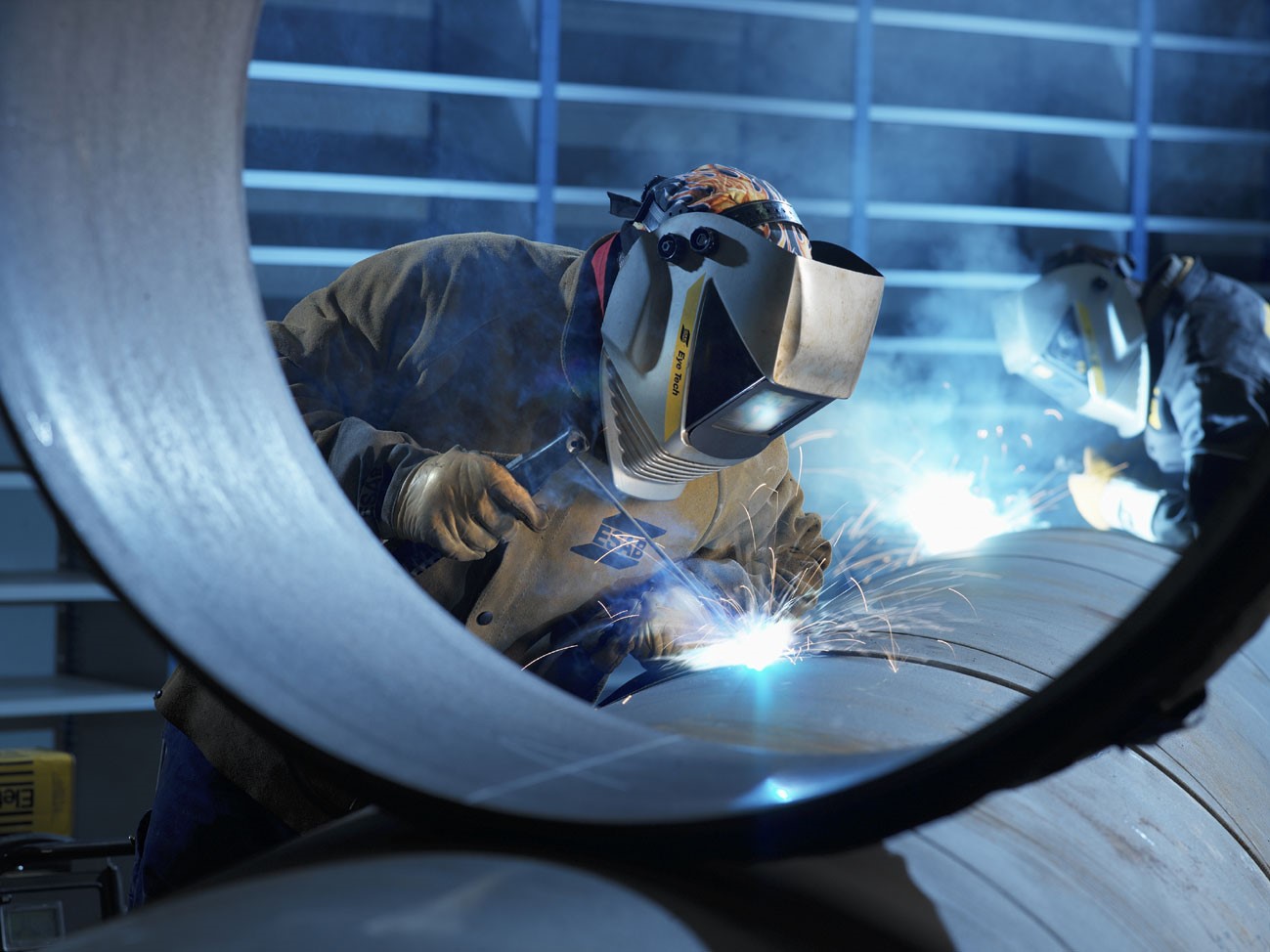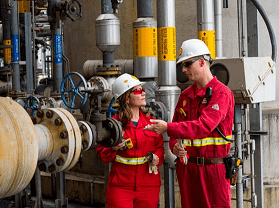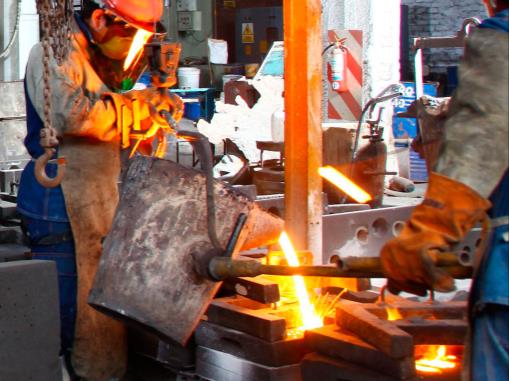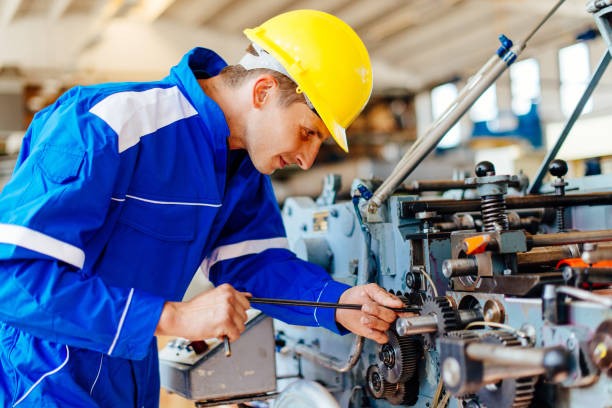COURSE OVERVIEW
FE0442 : ASME BPV CODE, SECTION IX: WELDING, BRAZING AND FUSING QUALIFICATIONS

OVERVIEW
| COURSE TITLE | : | FE0442 : ASME BPV CODE, SECTION IX: WELDING, BRAZING AND FUSING QUALIFICATIONS |
| COURSE DATE | : | Sep 07 - Sep 11 2025 |
| DURATION | : | 5 Days |
| INSTRUCTOR | : | Mr. George Poulos |
| VENUE | : | Al Khobar, KSA |
| COURSE FEE | : | $ 5500 |
Course Description
This practical and highly-interactive course includes various practical sessions and exercises. Theory learnt in the class will be applied using the following practical methods:-
(1) Industrial Facility Visit: Course participants will be taken to an industrial facility where they will practice welding, fabrication and inspection. In case that this course is organized inside client premises (In-House), then client shall provide access to its welding and fabrication workshop for practical sessions.
(2) Welding Simulator: Participants will use in the class the welding & fabrication software and AWS Tool Kit & Structural Weld Replica Kit to practice some of the skills learnt.
Welding Technology plays a major role in all maintenance and fabrication activities in the industry. Production equipment, a highly sophisticated welding technique and qualified personnel allow processing or production of steel products for different applications within short periods. This course provides a much-needed source of authoritative information on the complex subject of welding. It provides a comprehensive run-down of the complex science of welding- processes, selection of power sources, weld metallurgy, weldability of metals, testing and inspection techniques.
This course is designed to provide participants with a detailed and up-to-date overview of welding, brazing, and fusing qualifications in accordance with BPV code, section IX. It covers the ASME BPV section IX; the relationship of section IX to other codes and the secret to using section IX efficiently; the welding processes covering fuel gas, shielded metal ARC, gas tungsten ARC, gas metal ARC, submerged ARC, plasma ARC, electroslag, electrogas, beam, stud, friction, resistance, explosion, diffusion and hybrid; the shield-metal arc welding (SMAW) variables as well as P-numbers, S-number and non-code metals; the steel metallurgy; the hardenability; the preheat and postweld heat treatment; the filler metal specifications including F-numbers, A numbers, SFA specification and non SFA filler metals; and the variables for other common processes, practical aspects and basic welding metallurgy for steels.
Further, this course will also discuss the various approaches to writing the welding procedure specification and customer requirements; the direction to the welder and sources of information for preparing intelligent and meaningful welding procedure specifications; selecting, preparing and welding test coupon as well a selecting test coupon materials for maximum cost-effectiveness; recording both necessary and worthwhile data and code compliance; the records and procedures and welder and welding operator qualifications; the responsibility for testing welders and welding operators as well as performance qualification variables; selecting test coupons, test completed welds and maintaining qualifications over time; and how the welding influences toughness and how construction codes deal with toughness.
During this interactive course, participants will learn the WPSS for impact tested applications; the supplementary essential variables and document them during welding; measuring and recording heat input data and translating heat input data into useful directions for welder; the brazing qualifications, brazing processes and variables; the QW (welding) and QB (brazing) sections; the qualification of the brazing procedures and brazers and the differences between welding and brazing; the fusing qualifications, plastic fusing processes and variables; and the qualification of the fusing procedures and fusing operators.
link to course overview PDF
TRAINING METHODOLOGY
This interactive training course includes the following training methodologies:
LecturesPractical Workshops & Work Presentations
Hands-on Practical Exercises & Case Studies
Simulators (Hardware & Software) & Videos
In an unlikely event, the course instructor may modify the above training methodology for technical reasons.
VIRTUAL TRAINING (IF APPLICABLE)
If this course is delivered online as a Virtual Training, the following limitations will be applicable:
| Certificates | : | Only soft copy certificates will be issued |
| Training Materials | : | Only soft copy materials will be issued |
| Training Methodology | : | 80% theory, 20% practical |
| Training Program | : | 4 hours per day, from 09:30 to 13:30 |
This course is no longer available.
Please check below for other scheduled dates.
RELATED COURSES

FE0570 : API 579-1/ASME FFS-1: Fitness-for-Service (FFS) of Process Plant Equipment, Pressure Vessels, Piping & Storage Facilities
- Date: Mar 29 - Apr 02 / 3 Days
- Location: Al Khobar, KSA
- Course Details Register

FE0985 : Thermal Infrared Testing Level-I Training & Certification (SNT-TC-1A)
- Date: Mar 14 - Mar 18 / 3 Days
- Location: Cairo, Egypt
- Course Details Register

FE0928 : Metallurgy for Non Metallurgist
- Date: Mar 29 - Apr 02 / 3 Days
- Location: Doha, Qatar
- Course Details Register

FE1021 : Materials and Testing Foundation
- Date: Mar 29 - Apr 02 / 3 Days
- Location: Istanbul, Turkey
- Course Details Register
